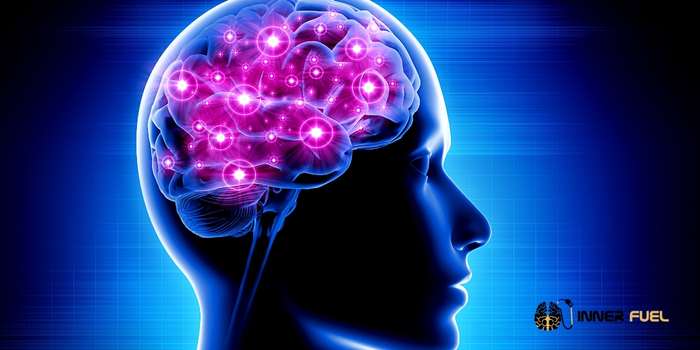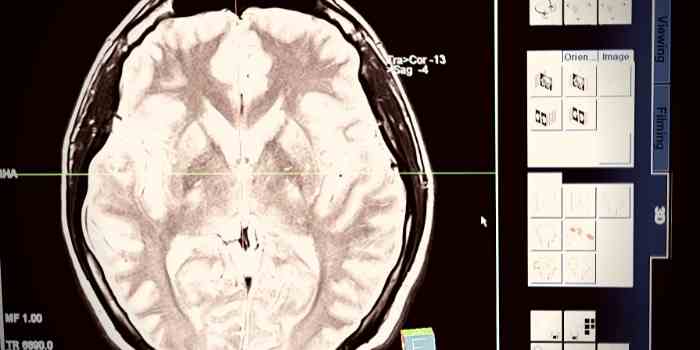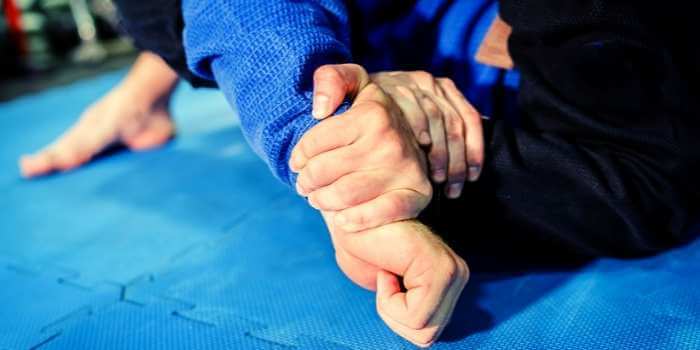
If there is one cognitive concept that all people are interested in, it is neurogenesis, or the ability to grow new brain cells. Who wouldn’t want more? What are brain cells?
A low rate of neurogenesis is associated with cognitive decline, memory problems, and even anxiety and depression. On the other hand, a high rate of neurogenesis is associated with just the opposite—cognitive enhancement, rapid learning, quick problem-solving, and robust emotional resilience against stress, anxiety, and depression. That’s what we all want.
I’ll tell you what I tell them: if you want to develop new neurons, you should exercise. You must do something to improve your cognitive ability and intellect. aerobic exercise, which research has shown to be the most efficient method of encouraging neurogenesis
Scientist Fred Gage of the Salk Institute for Biological Studies and colleagues at Sweden’s Sahlgrenska University Hospital undertook pioneering research that discovered that adults might develop new brain cells in the hippocampus, a brain region critical for learning and memory.
Besides, the brain and gut have connections with others. Many animal studies found that active mice had a far more varied population of gut bacteria than their sedentary counterparts
Related: Why Gut health is the Cornerstone For Brain Health?
Hippocampus Neurogenesis, And Neuroplasticity

Dr. Gage and his colleagues discovered that mice with access to a running wheel increased hippocampus neurogenesis, neuroplasticity, and new learning more than mice who did not. According to research, the origin of neurogenesis was physical activity.
Aerobic exercise has been found in studies to increase or even triple the number of new neurons in the hippocampus, the area of the brain responsible for memory and learning.
While we don’t fully understand how exercise works, we do know that it stimulates the brain to create brain-derived neurotrophic factors (BDNF). This protein has been found to regulate neurogenesis.
Exercise also stimulates the blood in the brain to produce proteins that stimulate the formation of neurons in the hippocampus. (source)
Research also found that Ketones-hydroxybutyrate (BHB), which is increased after fasting, a ketogenic diet, and exercise, gives neurons energy and stimulates BDNF production. (source) That’s why multiple studies have shown that ketones are both good for the brain and neuroprotective.
So far, both exercise and BDNF have been linked to more neurons being made in the brain. More research has shown that mice who run on a treadmill and humans who do aerobic exercise have more BDNF in their brain.
What Are The Best Exercises For NEUROGENESIS?
Some types of exercise can better Neurogenesis.
Neurogenesis is encouraged by specific types of exercise, primarily running and other continuous aerobic activity, instead of cerebral circulation, which can be increased simply by moving your body more.
In animal experiments, rats that ran on a treadmill for six to eight weeks had more new neurons than their littermates, who simultaneously completed sprints or other high-intensity intervals. The brains of rats who only lifted weights (going up a vertical ladder with weights) exhibited no identifiable new neurons compared to a sedentary control group.
Work Out for a Smarter, Bigger Brain

On cognitive tests, persons who exercise regularly outperform couch potatoes, according to research after study. But how does exercise improve our intelligence?
Increasing brain circulation and promoting neurogenesis are beneficial, but physical activity has additional benefits.
Regular exercise boosts the hippocampus, the area of the brain responsible for memory and learning. The larger your hippocampus, the better your brain can remember and learn new things. (source)
Increasing hippocampus volume also protects the brain from mood disorders such as depression and neurodegenerative diseases such as Alzheimer’s. (source)
Related: 5 Best and Effective Nootropics For Better Brain Functions
Furthermore, human research discovered that moderate exercise increased the size of the hippocampus and improved memory. As a result, if you want to help repair some of the damage to your hippocampus, make sure you exercise regularly.
https://www.flintrehab.com/hippocampus-brain-injury/
Hippocampus Shrinks With Age
Like other parts of the brain, the hippocampus shrinks with age, which is why we have memory problems and poorer cognition as we age.
However, studies show that exercise can prevent and even reverse age-related shrinking. According to academics, it’s one of the few “proven” strategies for preserving hippocampus size and function.
Observational studies possible that:
- Physical exercise
- Cognitive stimulation
- General medical conditions can reverse age-related atrophy in the hippocampus
It can help increase the size of the hippocampus. (source)
What’s The Big Deal About The Gray Matter?
Grey matter is a term used in neuroscience to refer to the cerebral cortex, the brain’s outer layer covering the surface of both hemispheres.
The importance of grey matter has been highlighted recently due to its relation to cognitive functions and intelligence. (source)
Increasing the amount of this type of tissue in the brain improves its overall ability to think, reason, and remember.
The gray matter that is stronger and healthier can also help to avoid Alzheimer’s and other neurodegenerative diseases.
According to studies, doing ordinary activities like housework and gardening can also help create gray matter. People who are active outside the gym have more of this sort of tissue than those who aren’t. Also, Exercise increases serotonin and inhibits the conversion to kynurenine by enabling more tryptophan to be delivered into the brain(which converts to serotonin), so improving mood and reducing anxiety.
Gray matter is the outer layer of the brain associated with high-level brain functions such as problem-solving, language, memory, personality, planning and judgment.
What About The White Matter?
Physical activity increases nerve fibers’ volume and connection, accounting for more than half of our total brain volume.
Exercise also enhances connectivity between the left and right hemispheres of the brain, which boosts creativity, language abilities, memory retrieval, focus, and motor coordination.
Aerobic Exercises To Increase Brain Size And Make You Smarter
Aerobic exercise training increases the anterior hippocampus, resulting in better spatial memory. Physical activity boosted hippocampus volume by 2%. (source)
Sustained aerobic exercises, such as running and walking, are also excellent for developing the hippocampus and other gray matter.
While recent research suggests that yoga can improve hippocampus size, the jury is still unsure whether lifting weights and other physical exercises stimulate gray matter growth.
Regarding brain connectivity, distance running is the best technique to enhance the number and diversity of synapses in the brain. According to much research, brain scans of runners indicate increased connection across networks related to executive function and motor control.
Because you require your brain to multitask as you navigate, respond to inputs around you, analyze road conditions, and engage in sequential muscle-motor abilities when you jog or run.
Fight Brain Stress.

If you’ve ever ended a stressful day with a long walk or a sweaty gym session, you know how a good workout can help you feel less stressed, calm your nerves, and feel better about life.
That’s because exercise sets off a chain of physical changes that affect the sympathetic nervous system.
Even though exercise makes the stress hormone cortisol, it makes the brain more alert instead of less smart.
Working out also increases the production of endorphins and the neurotransmitters dopamine, serotonin, GABA, and noradrenaline, all of which improve mood and reduce stress.
Related: Here is The Connection Between Serotonin and Mood
Physical activity also changes the body over time to better control cortisol.
Studies show that animals that can move as much as they want have less of a “fight or flight” response than animals that can’t move as much as they want.
Here’s a scary fact from research about exercise and stress: if you don’t work out, your neurons can even change shape and grow new branches that make you more prone to stress and anxiety.
Related: Anxiety 101: The Essential Guide to Lower Your Anxiety
Best Exercises To Reduce Stress

Any activity that makes you feel good is a good way to deal with stress. I think the best one is my favorite is Brazilian Jiu-Jitsu. Not just for reducing stress, it also helps increase oxytocin and improves self-defense and self-esteem.
However, forget what your friends like to do or a workout that was suggested to you but you don’t like. Forcing yourself to do something you don’t like can make you more stressed, which can cancel out the benefits of exercise.
Research shows that people who work out in groups, like running a club, a yoga class, or a dance lesson, feel less stressed than those who work alone. Scientists say that the social benefits and emotional and mental support that come with group exercise add to the stress-relieving effects of exercise.
Activities like yoga, tai chi, and qigong that combine movement with working on your breath can help you feel calmer and more peaceful.
It has also been shown that gardening and other nontraditional forms of exercise can help people deal with acute stress. One study found that gardening relieved stress more than sitting inside and reading quietly.
Adaptogens Can Help
The word “adaptogen” refers to the nonspecific, endocrine-regulating, immune-modulating effects of certain plants that make it easier for a person to stay in balance when they are under physical or emotional stress. These natural substances are the perfect way to make up for the lack of energy caused by the demands of modern life.
By learning how stress affects the body and brain, you’ll be able to see why adaptogens are the foundation of any good program for improving health and well-being, no matter what a person’s problems or goals are. Researchers are finding that adaptogens are good for humans and animals.
Herbal adaptogens and adaptogenic formulas can be considered tonics for the whole body, including the adrenal glands, brain, heart, immune system, and liver. This is because they make the body more resistant to destructive things and lessen the effects of long-term stress.
Related: How Adaptogens Work For Weight Management
Other Things and Tips You Can Improve Your Cognition Such as:
- MCT Oil: The fatty acids increase memory because of their structure. The brain uses that MCT oil for energy, which leads to better cognition thanks to beta-hydroxy-butyrate, a ketones product. Ketones also help with dementia as well as Alzheimer’s. Yet, MCT also increases mood slightly and suppresses hunger.
- N-acetylcysteine: Some people report they get benefits when they try NAC. NAC is a compound found naturally in the body that can help protect brain cells. It can also support the reward system and balance glutamate, an amino acid. NAC also helps increase master antioxidant glutathione which is beneficial for brain health, mood, and overall immune system.
- Fasting: This is not supplements or other things, yet like the ketogenic diet, it increases cognition, focus, and willpower. Yet, I believe fasting has spiritual power if you combine it with good habits such as meditation, good sleep, supplements, and low-stress levels. Fasting is better when increasing new brain cells via BDNF protein production.
- Green Tea includes the chemical epigallocatechin gallate (EGCG), which is linked to increased brain cell formation. Green tea has long been regarded to be beneficial to memory. Green tea has been shown in studies to influence brain cell formation, benefiting both memory and spatial learning.
- Optimize Your Gut Health: The gut becomes our second brain, and most neurotransmitters such as GABA, Serotonin, and Dopamine are created there. Our neuron carries those neurotransmitters via the vagus nerve into the brain. Optimizing, healing, and strengthening our gut health helps cognition and brain power and lowers the risk of cognitive decline, better mood, and overall health.
Ketones (beta-hydroxybutyrate) is also an important epigenetic player, having significant effects on DNA expression, increasing detoxification pathways and your body’s own antioxidant production. Beta-hydroxybutyrate also stimulates specific receptors on cells called g-proteins.
Iron overload Provokes a Neurotoxic Effect In The Brain
The majority of research has focused on iron-related liver injury. Unfortunately, iron overload can cause brain cells damages, and lower neurogenesis and BDNF provoke a neurotoxic effect.
People won’t aware that iron buildup or iron overload in the brain is typically related to neurodegenerative illnesses such as Parkinson’s and Alzheimer’s disease, cellular damage after a hemorrhagic stroke, and even traumatic brain injury. (source)
People mostly consider iron deficiency, but in reality, iron overload might be a more common problem and a lot more dangerous than iron deficiency anemia. Why? Because there is no obvious effective iron elimination pathway (some supplements might be helpful), almost all adult males and postmenopausal women are at risk for iron excess.
In other words, these populations do not experience frequent blood loss. Some of the symptoms of iron overloads are:
- Fatigue (feeling tired a lot).
- General weakness
- Erectile Dysfunctions (iron toxicity may cause erectile dysfunction (impotence), lack of sex desire in males, and menstrual cycle absence in women.)
- Brain Fog
These are some of the iron overloads that cause inflammation, damaging mitochondria, cells, oxygen intake as well as overall health.
How To Get Rid of Excess iron
Eliminating and detoxing excess iron can be helpful for men’s and women’s health and improve erectile functions, sexuality, hormones, and cell health. Here are the tips:
- Reducing heme iron intake and red meat will help overcome and stopped iron toxicity
- Exercise: can helps you use excess iron for energy, and mitochondrial energy and the body and muscles utilize more iron while exercising and sweating.
- Milk Thistle: According to studies, milk thistle may reduce ferritin levels, improve liver health, and address other issues related to iron overload. Milk thistle polyphenols, such as silymarin and silybin, have been demonstrated to aid liver function and promote health. Milk thistle also helps to boost glutathione production, eliminating other heavy metal toxins.
- Donate blood: The best strategy for optimizing your iron level and helping others is donating blood. On average, you can give 20% of your iron in just one session of blood donation, which will help to overcome iron overloads.
If you have high levels of iron, it’s possible for blood vessels and develops heart disease since iron can cause oxidative stress. However, keeping an eye on your ferritin levels to ensure they aren’t much higher than 80 ng/ml would be the best approach for your health.
Why is Gut Health such an Important Cognition?
People who took probiotics had an increase in grey matter volume as well as alterations in brain activity. That’s why gut health is the cornerstone for brain health, and that’s why they called it: the “Second Brain.”
Other nutrition such as marine-based omega-3 fats DHA and EPA, choline, phosphatidylserine, acetyl-L-carnitine, and vitamins D and B12 are good for brain health and cognition.
For example, Choline helps protect against Alzheimer’s by lowering your homocysteine level, an amino acid linked to neurodegeneration and the formation of amyloid plaques, and by stopping microglia activation, which stops brain inflammation.
Regarding omega-3 fats, choosing the lysophospholipid form of EPA (LPC-EPA) increased EPA levels 100-time better in mouse brains, and Increasing brain EPA levels may help brain cells and cognition. (source)